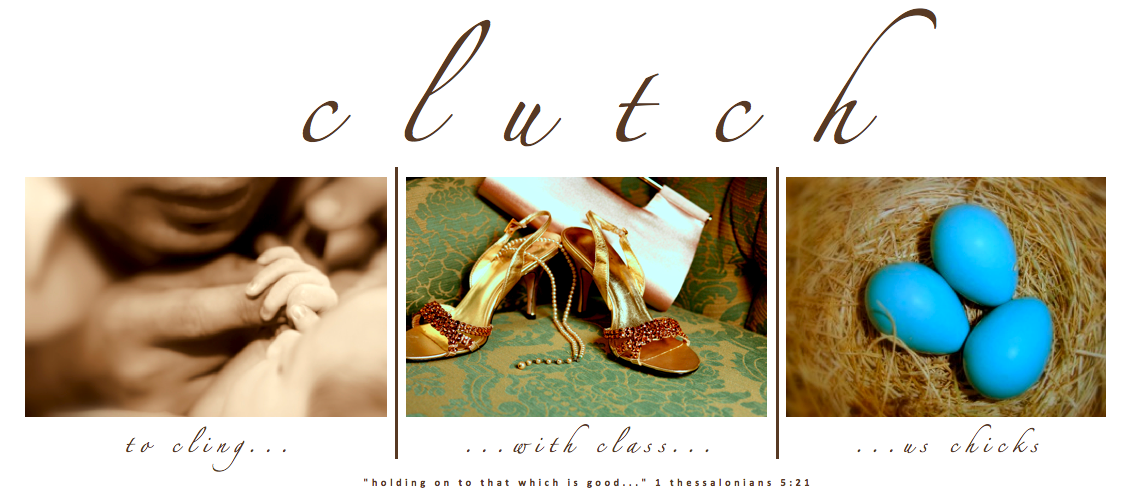positive discipline - part 1
>> May 19, 2010
What do you think of when you hear the word “discipline”? Punishment? Spankings? Groundings? I think of the most unpleasant task of parenting. But the word discipline actually means “to make disciples.”
In other words, it means to train and teach our children about the character of God. The Bible tells us that it is our responsibility to teach our children the commandments of God, and we are to do so diligently (Deut. 6:6-9). The Bible also says in Proverbs 13:24 that if we fail to discipline our child, then we are failing to love them!
Discipline doesn’t have to be unpleasant. It should be positive in nature. Positive discipline? Isn’t that an oxymoron? Those two words don’t seem to go together in the same sentence. But they should always be together. Discipline shouldn’t be anything but positive.
What is positive discipline? It is discipline that is encouraging and uplifting in nature, designed to constructively teach the child the ways of the Lord.
Today I will give you an overview of some of the principles of positive discipline. These ten aspects make the difference between positive, constructive discipline, and that which is negative and destructive.

In other words, it means to train and teach our children about the character of God. The Bible tells us that it is our responsibility to teach our children the commandments of God, and we are to do so diligently (Deut. 6:6-9). The Bible also says in Proverbs 13:24 that if we fail to discipline our child, then we are failing to love them!
Discipline doesn’t have to be unpleasant. It should be positive in nature. Positive discipline? Isn’t that an oxymoron? Those two words don’t seem to go together in the same sentence. But they should always be together. Discipline shouldn’t be anything but positive.
What is positive discipline? It is discipline that is encouraging and uplifting in nature, designed to constructively teach the child the ways of the Lord.
Today I will give you an overview of some of the principles of positive discipline. These ten aspects make the difference between positive, constructive discipline, and that which is negative and destructive.

Positive Discipline should be:
· Prayerful
· Proactive
· Consistent
· Swift
· Firm
· Honest
· Clear
· Appropriate
· Fair
· Level-headed
· Prayerful
· Proactive
· Consistent
· Swift
· Firm
· Honest
· Clear
· Appropriate
· Fair
· Level-headed
I will deal with the first two aspects today, and then the other principles in later posts.
Prayerful – We should first have a consistent prayer life in order to stay in tune with God, and constantly pray for our children’s growth and development. We should also pray everytime we are confronted with having to discipline our child, so that God can lead us according to His will. Additionally, we should make prayer with our child a part of the discipline process; and finally, we should always follow-up with prayer that the imposed discipline will be effective and constructive.
Proactive – The more proactive we are in discipline, the fewer problems we will have to deal with. Children thrive on structure and boundaries. If those boundaries and expectations have been made clear to our children, then we won’t have as many problems. Also, children will tend to misbehave when their structure is interrupted.
It is especially important to be consistent with mealtimes and bedtimes, as hunger and fatigue are major causes of bad behavior. Additionally, if we affirm good behavior, and communicate our love to children in ways they can easily understand (i.e. using their love languages), then we have gone a long way to alleviate many problems.
As pastoral families, we are watched in how we handle our children. Unfortunately, PKs are often seen as the worst behaved kids in church. I believe it is simply because church members expect more from PKs. That may be untrue and unfair, but the fact is, we can model the positive disciplining of our children. Let’s give them something good to talk about!
Prayerful – We should first have a consistent prayer life in order to stay in tune with God, and constantly pray for our children’s growth and development. We should also pray everytime we are confronted with having to discipline our child, so that God can lead us according to His will. Additionally, we should make prayer with our child a part of the discipline process; and finally, we should always follow-up with prayer that the imposed discipline will be effective and constructive.
Proactive – The more proactive we are in discipline, the fewer problems we will have to deal with. Children thrive on structure and boundaries. If those boundaries and expectations have been made clear to our children, then we won’t have as many problems. Also, children will tend to misbehave when their structure is interrupted.
It is especially important to be consistent with mealtimes and bedtimes, as hunger and fatigue are major causes of bad behavior. Additionally, if we affirm good behavior, and communicate our love to children in ways they can easily understand (i.e. using their love languages), then we have gone a long way to alleviate many problems.
As pastoral families, we are watched in how we handle our children. Unfortunately, PKs are often seen as the worst behaved kids in church. I believe it is simply because church members expect more from PKs. That may be untrue and unfair, but the fact is, we can model the positive disciplining of our children. Let’s give them something good to talk about!
© CLUTCH, 2010 unless otherwise sourced.
Use allowed by express written permission only.
Tweets, trackbacks, and link sharing encouraged.
Use allowed by express written permission only.
Tweets, trackbacks, and link sharing encouraged.













3 comments:
No discipline seems pleasant at the time, but painful. Later on, however, it produces a harvest of righteousness and peace for those who have been trained by it.
This is something that I make sure my children know... That no discipline is pleasant... and that's ok and while there is room for positive discipleship I believe that there has to be some room for it to be a little painful. Life isn't always going to hand us positive discipline , so i want to make sure that my kids know the balance of positive and unpleasant.
By positive, I don't mean pleasant. I mean the results are positive, as opposed to negative and destructive. There's a difference between punishment and discipline. Discipline will always result in positive, whereas punishment will be negative. Discipline is making disciples out of our children--instilling the character of Christ, while punishment is simply acting upon our children because we don't like what they did.
That verse used was straight out of the bible, and is something i choose to think is a pretty good instruction guide!
Thanks for ur input.
Post a Comment